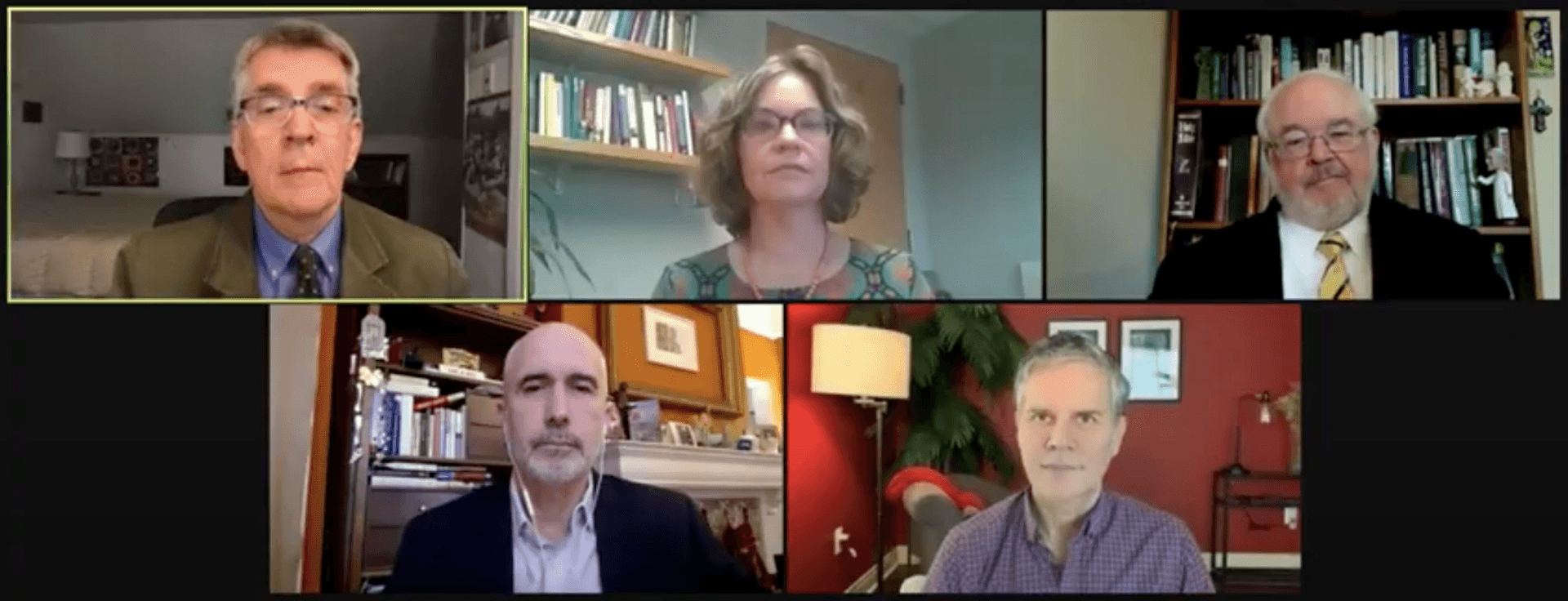NEW YORK — In the aftermath of the Holy See’s report on laicized ex-cardinal Theodore McCarrick, a clergy sex abuse survivor from Chile wants matters of clergy abuse to focus more on the survivors and less so on the episcopacy itself.
“For me, we’re discussing here how the bishops behave, how we elect them, how we make them better, how they serve us better. Where are the survivors? The men and women survivors have to be the center of our topics,” said Juan Carlos Cruz.
“There are so many questions and we feel that yes, we have a McCarrick report, which is a great step for sure. But the suffering and the horror that is still going for so many people in our church is real and it’s now and we need to address it immediately.”
Cruz was speaking during an online discussion Thursday organized by the Georgetown University Initiative on Catholic Social Thought and Public Life and the Fordham University Taking Responsibility: Jesuit Institutions Confront the Causes and Legacy of Clergy Sexual Abuse initiative.
Thursday marked one month since the release of the Holy See’s report that detailed how McCarrick rose through the ranks of the American Catholic Church despite decades-long confirmed accusations of sexual misconduct and abuse.

In that time, U.S. bishops have talked about the importance of transparency and accountability moving forward. And the importance of involving lay people in diocesan decisions. Meanwhile, as instances of clerical abuse continue to come out, like in the diocese of Buffalo, some lay people wonder how much will actually change.
John Carr, the director of the Georgetown initiative, spoke about his strong friendship with McCarrick from his time at the U.S. Bishops Conference. He said the report made his head and heart hurt and stomach sick. And called on McCarrick to take accountability for his actions.
“I hope he will come to own this, to apologize for it, to confess it for his good, for good of his victims, for good of the church. Each of us, whether we’re an archbishop or member, has to figure out what we need to do to help the church,” Carr said. “Healing will only come after justice and accountability and transparency and making things right.”
He called the biggest weakness of the report the fact that it dismissed money as a factor in McCarrick’s rise – he was long regarded as a prolific fundraiser in the Catholic Church.
“It acknowledged that he raised a lot of money, gave a lot of money away, but says that didn’t play a decisive role in his rise. It didn’t hurt,” Carr said. “One lesson here is we need to know who is raising money, from whom, for what and how it is used.”
Like Cruz, Carr spoke about the importance of hearing from the victim-survivors. He noted it’s important to involve them and other lay people in the process of choosing a bishop.
“(Priests) don’t have all the information, they don’t have all the insight and frankly they don’t have a lot of experience. If parents were in the room when these decisions were made there would have been different decisions,” Carr said. “If victims were in the room, if survivors were in the room there would have been different decisions. At every level, we need to find a way to open up these processes.”
David Gibson, director of the Center for Religion and Culture at Fordham University, knew McCarrick for almost two decades when working as a journalist.
He said the process for choosing a bishop is “corrupted and I think that points to a structural and policy reform that we can also look for.”
In the midst of the conversation about how to productively move forward, Cruz and Gibson both pointed to a larger problem that has been much maligned since the report came out – a cultural of clericalism in the Church.
Cruz specifically took aim at Archbishop Carlo Maria Viganó, the former apostolic nuncio to the United States who has a history of criticizing Pope Francis. He also called out Bishop Joseph Strickland of Tyler and Archbishop José Gomez of Los Angeles because “nobody utters a word now and they were the first ones to criticize Pope Francis and that’s a horrific thing.”
“That’s a horrific thing that you see this sort of organized crime protecting each other and it’s about protecting themselves and not protecting the vulnerable,” he continued.
Kathleen Sprows Cummings, director of the Cushwa Center for the Study of American Catholicism, highlighted the need for women to be involved in church leadership, as well.
“Women’s absence in this particular report and in church leadership in general certainly did not cause the sex abuse crisis but it absolutely extenuated it. Clericalism combined with reflexive dismissal of women is a particularly toxic mix and there will be no moving forward until this is resolved somehow.”
Gibson added that the McCarrick report shows how much bishops will do for power.
“Clericalism is not just an old boys’ network where they cover for each other. What this report shows is how much (the bishops) hate each other,” he said. “So much of what is revealed is how much backstabbing there is, conniving and gossiping and all of this kind of jockeying for power and position that is so detrimental to the health of the church.”
Follow John Lavenburg on Twitter: @johnlavenburg












